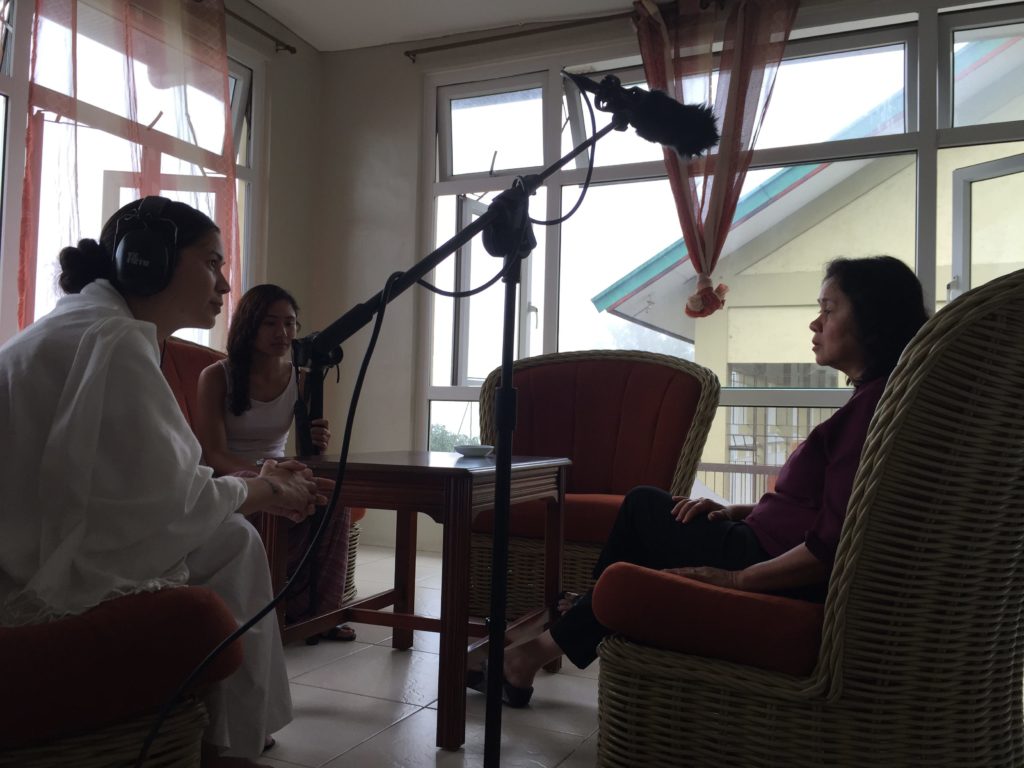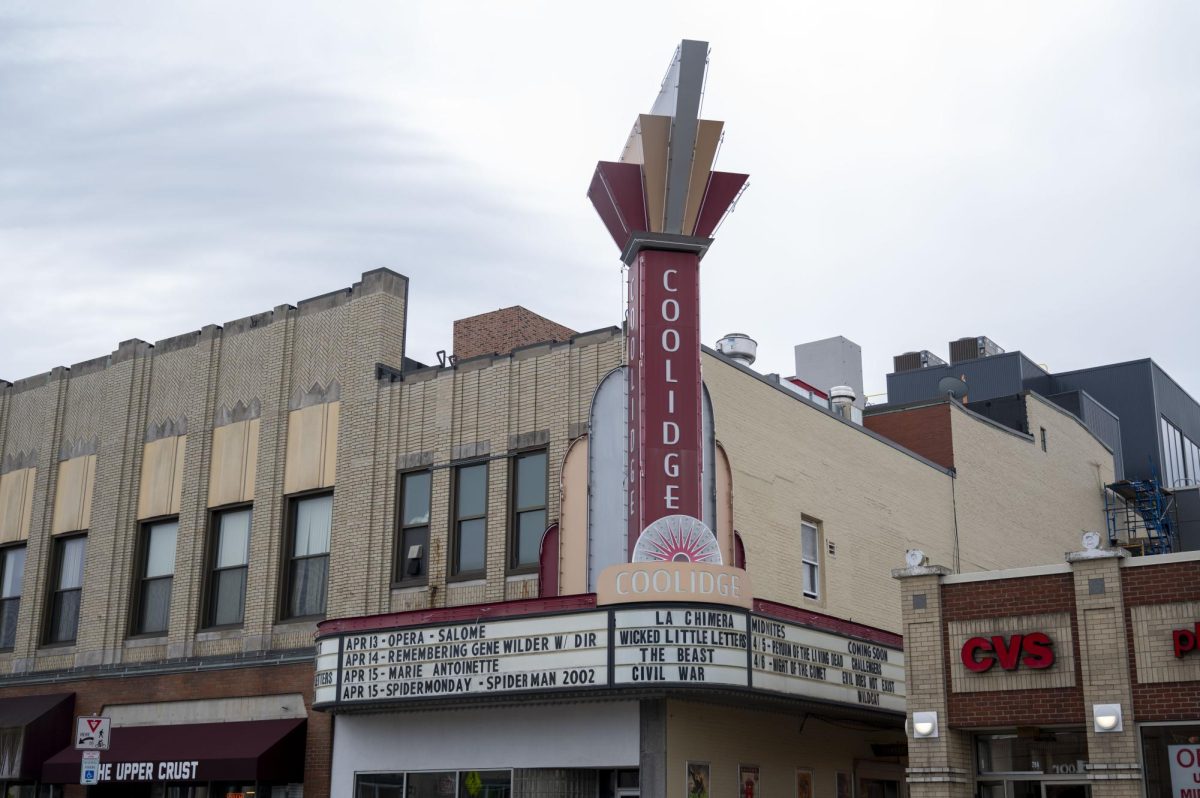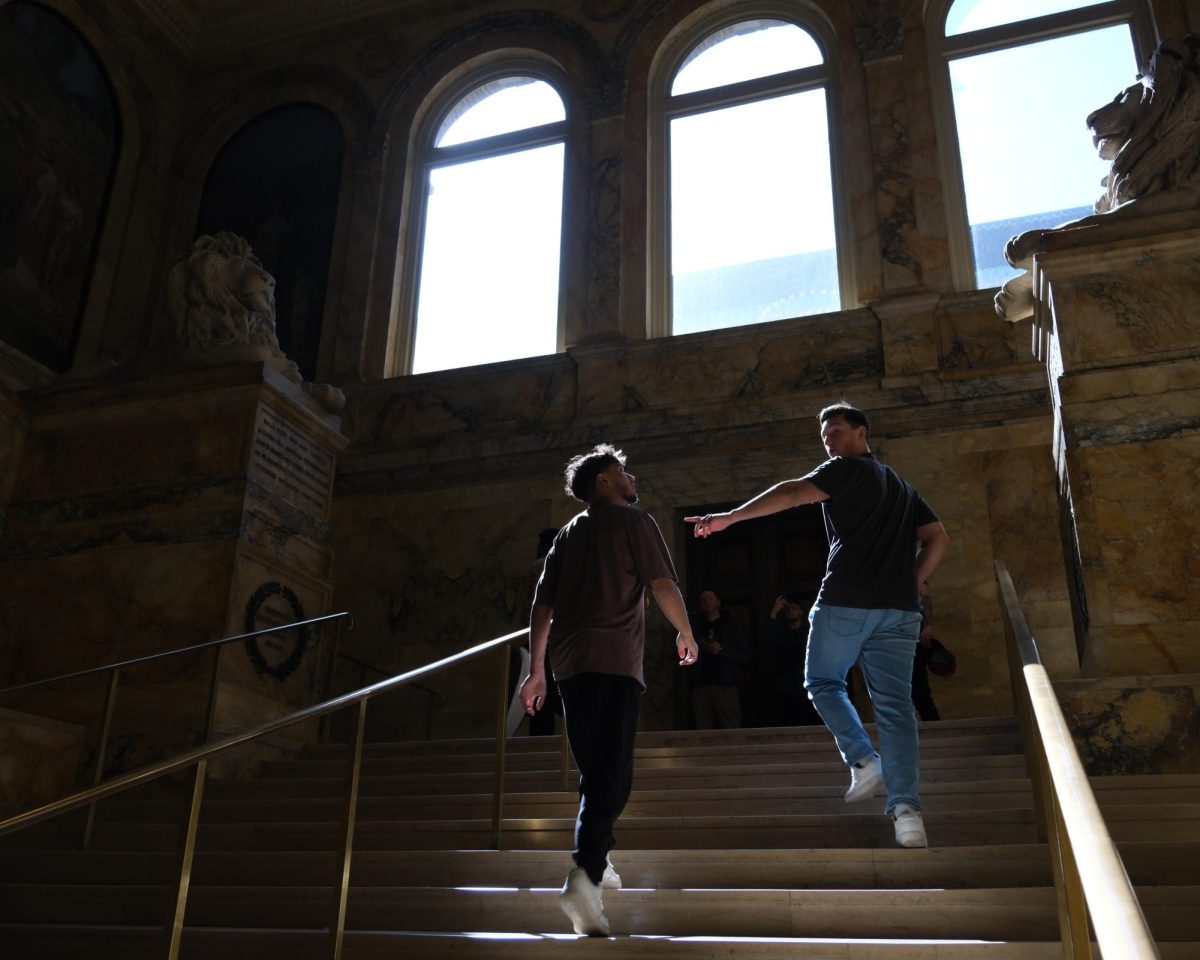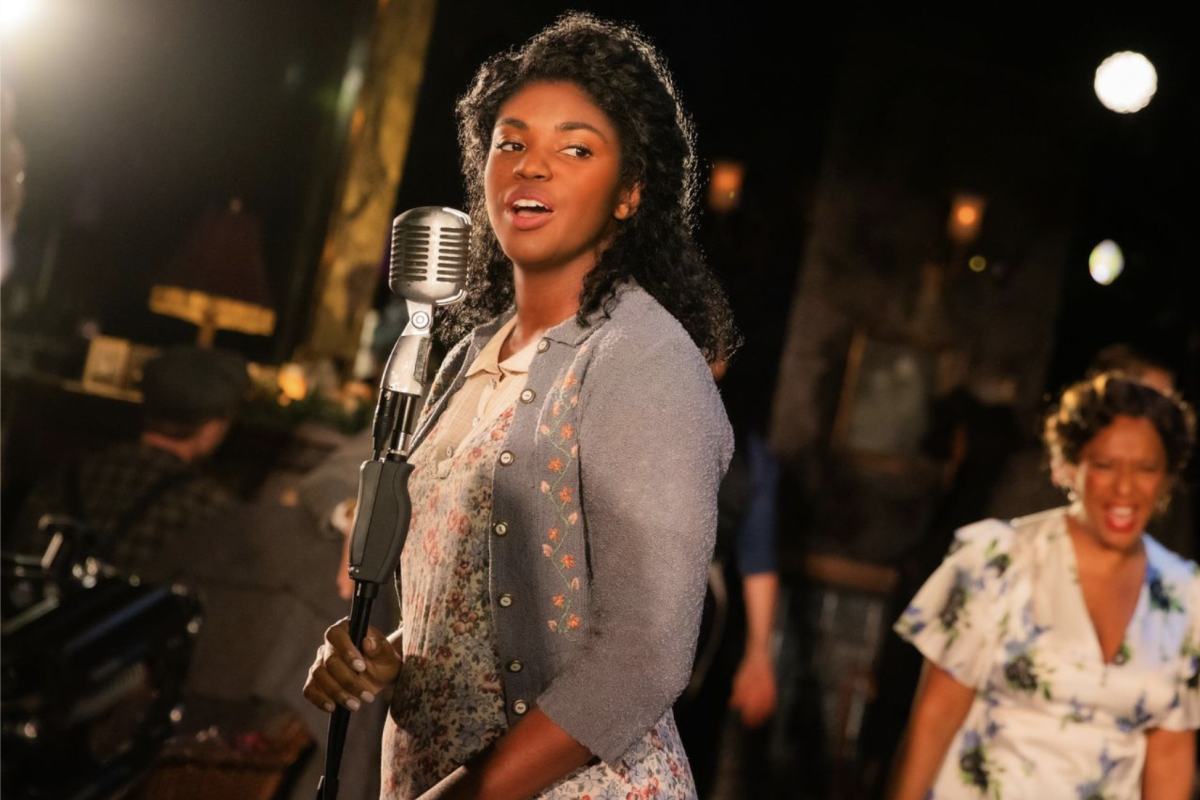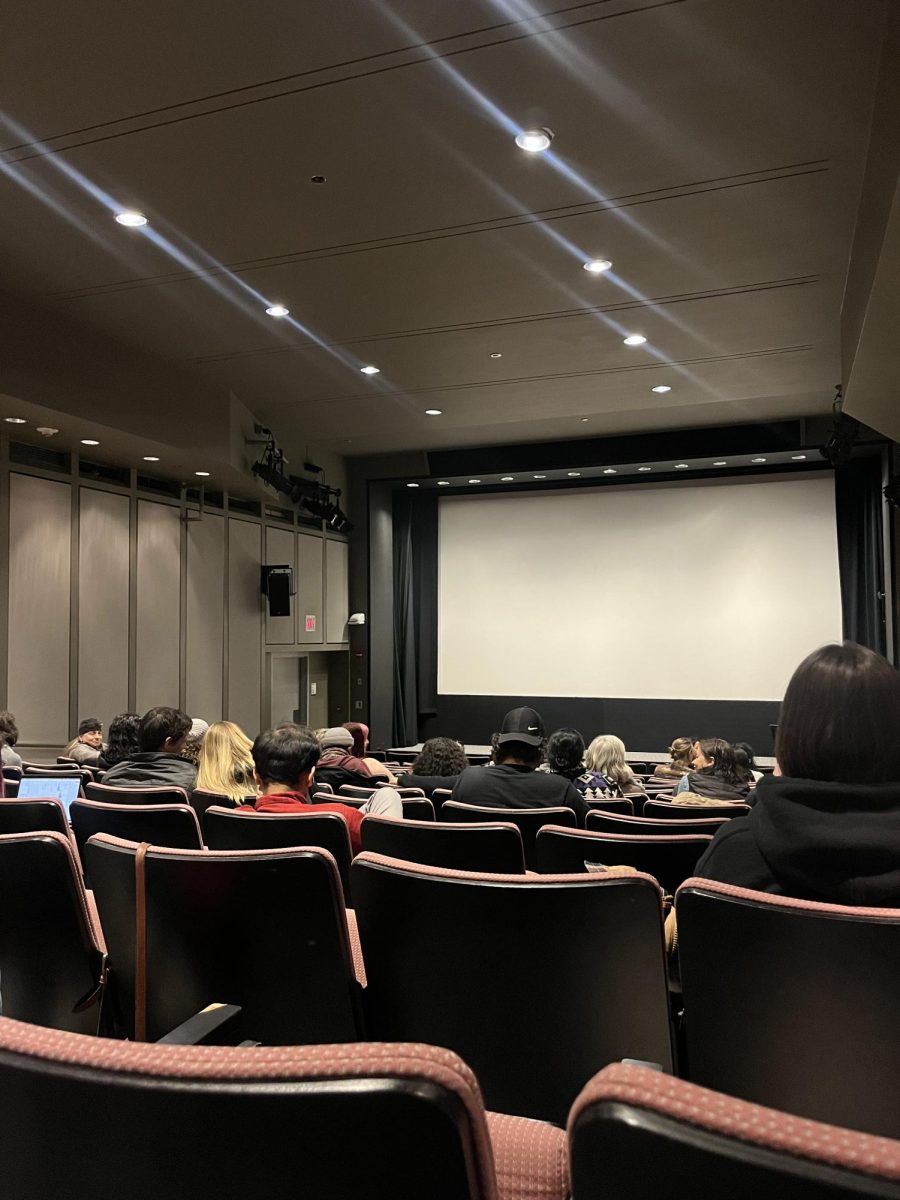By Logan Meyer, A&E editor
“Stopping Traffic,” a new documentary film by U.S. Army veteran and Jain monk Sadhvi Siddhali Shree, seeks to raise awareness of the epidemic of human trafficking.
The Studio Cinema in Belmont, Massachusetts, screened the world premiere of “Stopping Traffic” Saturday at 7:30 p.m. as part of the Global Cinema Film Festival of Boston. The theme of this year’s annual festival was “Films that make us care!” The film, an entirely volunteer endeavor funded by a Kickstarter campaign, takes viewers to the Philippines, Thailand, Mexico and several U.S. cities to confront the reality of human trafficking around the world.
Shree, an advocate for peace who works to end all forms of violence, said she wanted to take the taboo topic of human trafficking and bring it into the public sphere in a way which would inspire people to join the movement to end trafficking.
According to the Give Them a Voice Foundation, a nonprofit activist organization which works to end trafficking, human trafficking is defined as the trade of humans for forced labor or involuntary sexual exploitation. The exact number of trafficking victims globally is unknown, but the International Labor Organization in 2012 estimated nearly 30 million people were being trafficked around the world.
“Human trafficking is a dark, dark topic,” Shree said. “A lot of people in this [activist] community end up feeling hopeless and helpless. That’s why, with this film, we wanted to focus on the power, the hope, the empowerment, because if we focus on the heroes, the message, then people want to get involved.”
Shree created the film to achieve the large goal of increasing awareness of trafficking, but also wanted to emphasize the realities faced by its victims. John A. King, an activist and victim of sex abuse and trafficking whose testimony is documented in “Stopping Traffic,” said most people who engage in trafficking do so because any risk they encounter is mitigated by the substantial rewards.
“Human trafficking is now the tool for fundraising for terrorist organizations,” King said. “The return on investment is far greater for human trafficking than it is for selling drugs, and unfortunately the legal system supports that. If you’ve got the choice between getting caught with 10 k[g] of coke or 10 human beings, you’re better off getting caught with the human beings because the sentence is less.”
King said people choosing trafficking over other criminal enterprises increases the amount of secrecy that surrounds it. The film aims to remove that secrecy, but also to share the hardships faced by those who are trafficked. The effects of human trafficking on its victims extends far beyond the length of time in which the crime takes place, King said.
Stephanie Clark, an activist against trafficking, is the executive director of Amirah, a safe home in Boston for victims of sex trafficking. Amirah is for female victims and offers an individualized approach to helping each person based on their situation and needs.
“Most of the women who come to us are drug addicts,” Clark said. “We try to focus on the whole person in order to help them begin a journey of liberation from the cycle of exploitation.”
While there are resources and services in place to assist women who have been victimized in human trafficking, the same courtesy is not often extended to men, King said.
“There are very few resources for men who have been through situations like I have,” King said. “The only real feedback I got are that men are never raped and abused. There wasn’t a conversation about the sexual abuse of men.”
Worse yet, trafficking isn’t merely a problem in developing countries. Clark said human trafficking is a problem even in Boston. Already this year, Amirah has received 57 inquiries from Boston law enforcement and has had 20 women referred to them for help.
“There are roughly 1,000 or more victims in Boston, and more are constantly being moved through the 95 corridor,” Clark said, referring to Interstate 95 and other interstates near Boston.
Shree said there are more than 250 known pimps in Boston, each with approximately six girls working for them. Few actions have been taken to fix the problem, though new attention has been directed to the issue, King said.
President Donald J. Trump made a statement Feb. 23 promising that his administration would make ending human trafficking a priority. Activists said they are thankful for the new support.
“This is happening and people are aware of it, and someone in the highest office in the land of the most prominent nation in the world is recognizing that we have to do something about the trade of human beings and modern slavery,” King said.
However, Shree said changing the minds of those already in power is not the only purpose for making the film. A major inspiration for Shree was to inspire young people to take a stand and fight for change in society.
“Don’t get tainted by the world,” Shree said. “Find a cause you truly care about in your heart and follow through with that. Then you can truly make a difference in the world.”
More information about “Stopping Traffic” and the movement to end human trafficking is available at stoppingtrafficfilm.com. A screening is being planned in Boston this summer, with details on time and location yet to be announced.
Photo courtesy “Stopping Traffic” film







